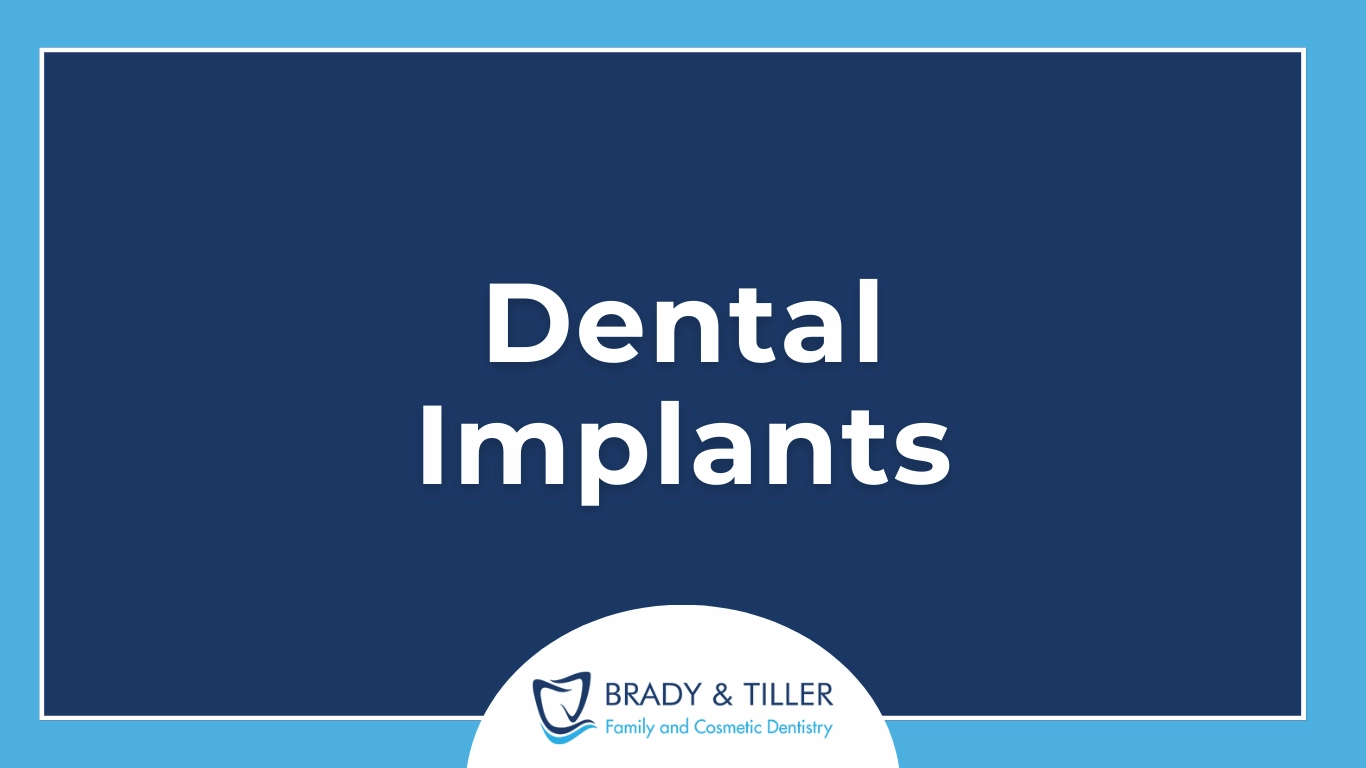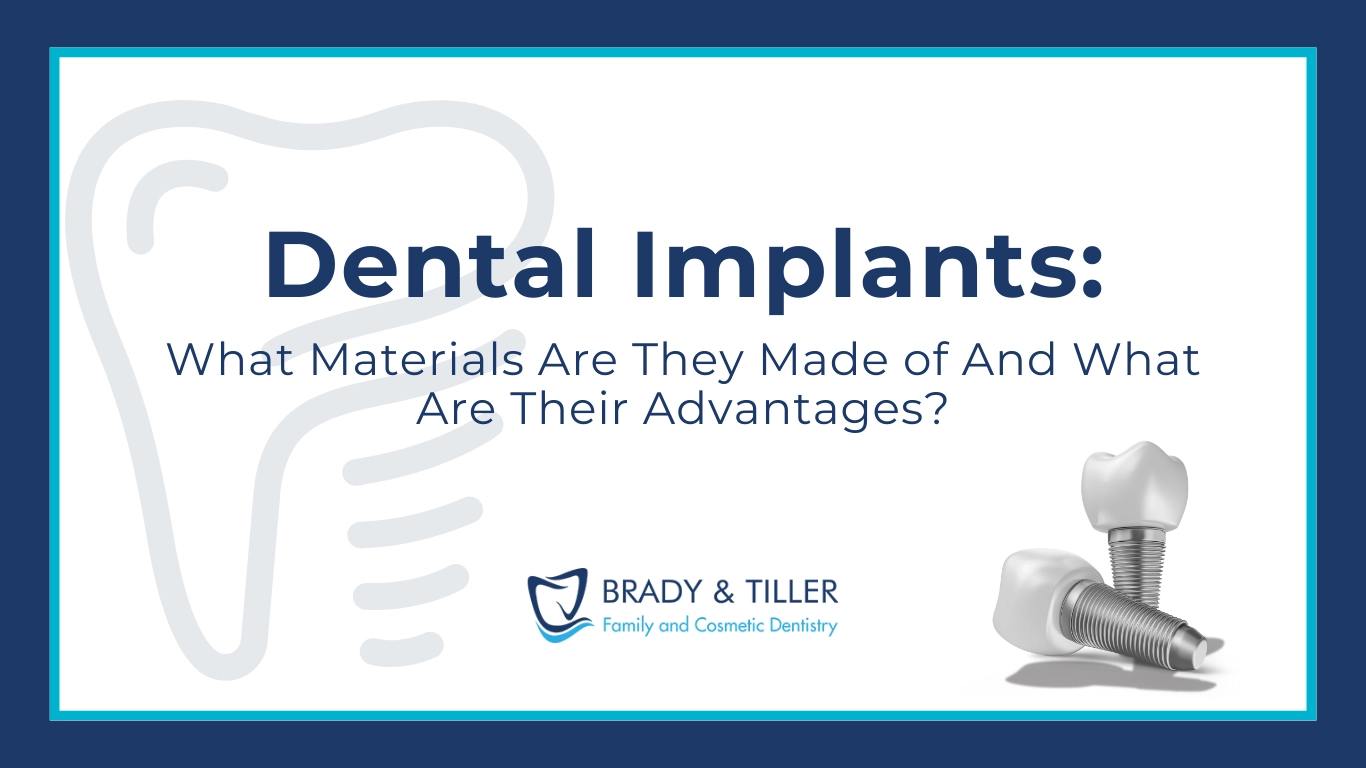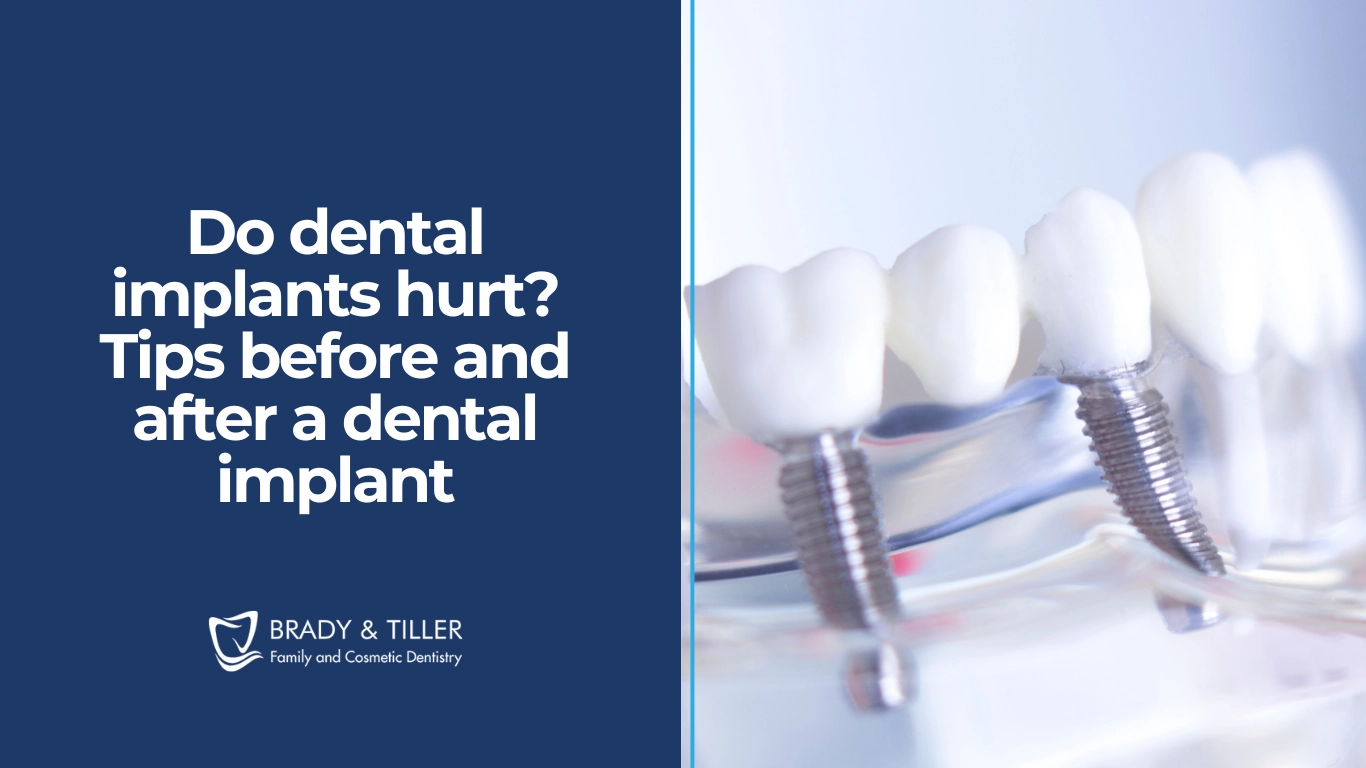When it comes to tooth replacement, dental implants are the gold standard. They offer unparalleled durability, functionality, and aesthetic appeal. At Brady & Tiller Family and Cosmetic Dentistry in Charlotte, NC, Dr. Erron Brady and Dr. Marisol Tiller are experts in providing top-quality dental implants to patients in Matthews, Mint Hill, Pineville, Mount Holly, Huntersville, Belmont, and Harrisburg. Our practice also offers 0% financing to ensure that everyone can achieve the smile they deserve. Contact us at (704) 321-0414 to schedule a consultation and learn more about how dental implants can transform your oral health.
What Are Dental Implants?
Dental implants are titanium posts that are surgically placed into the jawbone, acting as artificial tooth roots. Over time, the implants fuse with the bone through a process called osseointegration, providing a stable foundation for replacement teeth. This integration not only secures the implants firmly in place but also helps to maintain the health and integrity of the jawbone, preventing bone loss that often accompanies missing teeth.
Types of Dental Implants
-
- Endosteal Implants
Endosteal implants are the most common type of dental implant. These implants are typically shaped like small screws and are placed directly into the jawbone. Once the surrounding tissue has healed, a second surgery is performed to attach an abutment to the original implant. Finally, a crown is placed on top of the abutment, completing the restoration.
- Endosteal Implants
-
- Subperiosteal Implants
Subperiosteal implants are used for patients who do not have enough healthy jawbone to support endosteal implants and do not want to undergo bone grafting procedures. These implants are placed under the gum but on or above the jawbone. A metal frame is fitted onto the jawbone, with posts protruding through the gums to hold the replacement tooth.
- Subperiosteal Implants
- Zygomatic Implants
Zygomatic implants are the least common type and are used in cases where there is severe bone loss in the upper jaw. These implants are placed in the cheekbone (zygoma) rather than the jawbone, providing an alternative solution for patients who may not be candidates for traditional implants.
Recommendations for Dental Implants
-
- Consultation and Planning
The first step in the dental implant process is a thorough consultation and examination. Dr. Brady and Dr. Tiller will evaluate your oral health, take detailed X-rays and 3D images, and discuss your treatment goals. This planning phase is crucial to ensure the best possible outcome.
- Consultation and Planning
-
- Bone Grafting if Necessary
If you do not have sufficient bone density to support implants, a bone grafting procedure may be recommended. This involves adding bone or a bone substitute to the jaw to create a stable foundation for the implants.
- Bone Grafting if Necessary
-
- Placement of the Implants
Once the jawbone is ready, the implants are surgically placed. This procedure is typically done under local anesthesia, and sedation options are available for those who experience dental anxiety.
- Placement of the Implants
-
- Healing and Osseointegration
After the implants are placed, a healing period of several months is required for osseointegration to occur. During this time, the implants will fuse with the jawbone, creating a strong and stable base for the replacement teeth.
- Healing and Osseointegration
- Attachment of Abutment and Crown
Once healing is complete, an abutment is attached to the implant. The final step is the placement of the crown, which is custom-made to match the color, shape, and size of your natural teeth.
Benefits of Dental Implants
-
- Aesthetic Appeal
Dental implants look and feel like natural teeth, providing a seamless and attractive solution for tooth replacement. They can restore your smile and boost your confidence.
- Aesthetic Appeal
-
- Functionality
Implants provide full functionality, allowing you to eat, speak, and smile with confidence. Unlike dentures, which can slip or shift, implants remain securely in place.
- Functionality
-
- Durability
With proper care, dental implants can last a lifetime. They are a long-term solution that offers excellent value for your investment.
- Durability
-
- Bone Health
Implants help maintain the health of the jawbone by stimulating bone growth and preventing bone loss. This is crucial for maintaining the structure of your face and preventing a sunken appearance.
- Bone Health
- Convenience
Caring for dental implants is easy and straightforward. You can brush and floss them just like your natural teeth, and there is no need for special adhesives or cleaning solutions.






